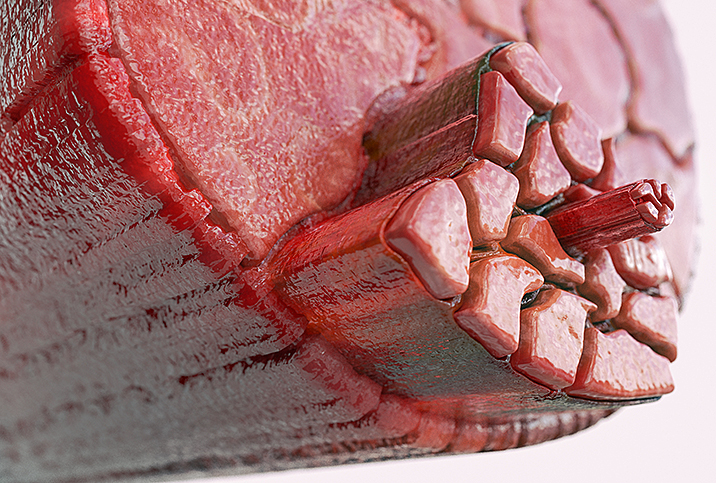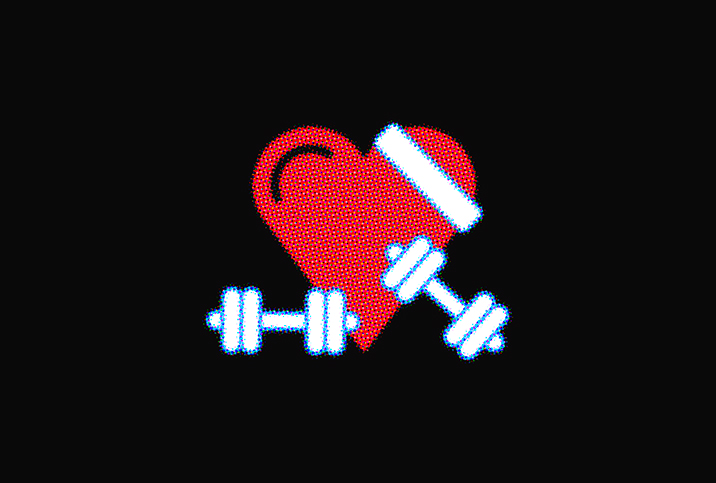A Look at the Dynamic Between Arterial Diseases and ED

People dealing with erectile dysfunction (ED) are likely to discover the condition is commonly associated with a variety of other health complications, which may be addressed by a primary care doctor or a specialist.
No one should assume the doctor they're seeing is able to provide an encyclopedic knowledge of the entire body.
"You know, if there's a guy who I think has some coronary artery disease along with his erectile dysfunction and I tell him, 'You need to go see a cardiologist and the cardiologist may do absolutely nothing for you, but I don't know if you have some baseline cardiac disease unless we go looking for it,'" said Matthew J. Mutter, M.D., a urologist and men's health clinician with LSU Health New Orleans.
Mutter said it's common for men to raise questions beyond the scope of a urological visit when they come in to talk about erectile function issues, and he gives a referral to a specialist if necessary.
"And I'm very clear to let them know what I'm thinking and that they really need to seek treatment from the professional in that arena," he said.
One condition that has the potential to impact erections is atherosclerosis, which results from plaque buildup in the arteries. Cardiac diseases linked to this condition collectively are the leading cause of death in the United States, and many people who live with the condition are unaware of it.
But what does plaque buildup in your arteries have to do with the fullness of your phallic formations?
A bad fit
"Vascular disease affects erections for a couple of reasons," said Marah Hehemann, M.D., a urologist and assistant professor at the University of Washington in Seattle. "First, the cavernosal arteries that are responsible for the majority of the blood flow into the penis are about 1 millimeter in diameter or less. [That is] in contrast to the coronary arteries that are about 4 millimeters in diameter. So if you…figure out the area of those circles, the coronary arteries are way bigger than cavernosal arteries."
She drew a direct connection between diseases like atherosclerosis and ED.
"When someone has vascular disease, like atherosclerosis, that will affect the smaller vessels in the body first, like in the penis," Hehemann said. "So we do think of erectile dysfunction as a possible canary in the coal mine of coronary artery disease."
Of course, being aware of the canary is one thing; it's another entirely to understand the importance of paying attention to what the bird is singing about. Men may not find their ED to be disruptive to their own desires and lifestyle, or may simply have ways of enjoying sex without dealing with the potential health problems at the root of ED.
But if ED is a "canary in the coal mine," it's important to remember the coal mine can cave in if you aren't careful.
What are smooth muscle cells?
Vascular smooth muscle cells (VSMCs) play a complicated role in the presence of atherosclerosis, according to Hehemann. It's a role the medical community continues to develop a better understanding of with new methods of lineage tracing and evolving transcriptomic knowledge at the disposal of scientists and researchers.
Theories about the role of VSMCs in atherosclerosis vary, with the medical community indicating they promote atherogenesis (the formation of atherosclerosis), stabilize plaque development or both.
Cellular science is complicated and ever-expanding, but as VSMCs become better understood within the larger scope of atherosclerosis, new treatment options and a better understanding of cellular function in general will follow. This will presumably lead to higher knowledge of cellular function as it relates to sexual function as well.
Probably the most prescient point right now surrounding smooth muscle cells is they are a significantly observable factor in erectile performance throughout the aging process.
For now, it can't be stressed enough that vascular and cardiovascular disease are real threats to be combated with forethought rather than afterthought.
Listening to the canary
"We need to always be mindful of the fact that a high percentage of people will ultimately die from cardiovascular disease," said Eugene Yang, M.D., the medical director of the UW Medicine Eastside Specialty Center at the University of Washington. "So we are always looking for opportunities and ways to lower the risk of that happening. So that's the first, I think, very important point."
Yang stressed that cardiovascular diseases and the conditions associated with them, such as ED, are avoidable with just a bit of early consideration and involved lifestyle management.
"The second important point is that, you know, a lot of it can be preventable," he explained. "So what I mean by that is optimization of lifestyle—eating healthily, abstinence from tobacco use, exercising regularly, limiting alcohol consumption, eating a low-sodium diet—those are all interventions that are going to lower your risk of heart disease. So anything you can do to optimize, to minimize typical risk factors is really essential to trying to lower your risk of having heart disease or developing heart disease."


















